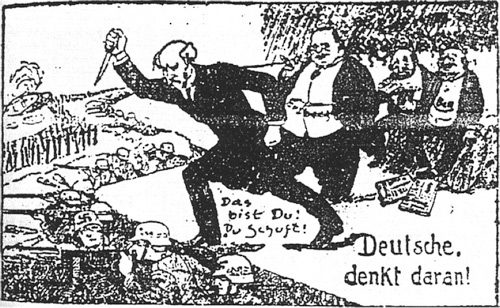Famous Political Lies That Shaped History
Introduction
Lies have always been a tool in the arsenal of politicians and governments. Whether to justify wars, manipulate public opinion, or consolidate power, political lies have shaped the course of history in profound ways. From ancient deceptions to modern misinformation campaigns, the impact of these falsehoods is undeniable. This article explores some of the most infamous political lies, their consequences, and how they changed the world.

1. The Trojan Horse – A Deceptive Victory
One of the earliest and most legendary political deceptions comes from ancient history. According to Greek mythology, the Greeks used a giant wooden horse to trick the Trojans into bringing enemy soldiers inside their city walls. The result was the fall of Troy. Though its exact historical accuracy is debated, the story of the Trojan Horse remains a powerful metaphor for political trickery.
2. Nero and the Great Fire of Rome
In 64 AD, a great fire devastated Rome. Rumors spread that Emperor Nero had orchestrated the disaster to clear land for his grandiose construction projects. In response, Nero deflected blame onto the Christians, leading to severe persecution. While historians debate Nero’s actual role in the fire, his propaganda efforts demonstrate how rulers manipulate crises to serve their interests.
3. The Donation of Constantine – A Fabricated Legitimacy
For centuries, the Catholic Church justified its political power with the Donation of Constantine, a document allegedly granting the Pope authority over vast territories. It was later revealed to be a forgery, but not before it had influenced medieval politics and shaped the power dynamics between church and state.
4. The Spanish Inquisition – Exaggeration and Fearmongering
While the Spanish Inquisition did exist and was responsible for many atrocities, historical records suggest that its severity was exaggerated. Political leaders and Protestant propagandists inflated figures and dramatized events to paint Catholic Spain in a negative light. This is an early example of political misinformation being used to sway public opinion.

5. The Dreyfus Affair – A Case of Political Scapegoating
In 1894, French army officer Alfred Dreyfus was falsely accused of treason. The real culprit was protected due to anti-Semitic biases within the French military and government. The scandal divided France and revealed the power of media and public discourse in exposing political lies.
6. The Reichstag Fire – A Manipulative Ploy
In 1933, the Reichstag (German Parliament) was set on fire. The Nazis blamed communists and used the event to justify mass arrests and the consolidation of Hitler’s dictatorship. Though the true culprit remains uncertain, the Nazis exploited the fire to dismantle democracy and establish authoritarian rule.
7. The Gulf of Tonkin Incident – A Lie that Led to War
In 1964, the U.S. government claimed that North Vietnamese forces attacked American naval ships in the Gulf of Tonkin. This claim was later revealed to be exaggerated or entirely false, but it served as the pretext for escalating the Vietnam War. The deception cost millions of lives and shaped Cold War politics.
8. Watergate – A Web of Lies and Cover-ups
The Watergate scandal exposed how President Richard Nixon’s administration engaged in illegal activities and attempted to cover them up. Investigative journalism uncovered the truth, leading to Nixon’s resignation. The scandal remains a defining moment in political accountability.
9. Weapons of Mass Destruction – The Justification for the Iraq War
In 2003, the U.S. government, under President George W. Bush, claimed that Iraq possessed weapons of mass destruction (WMDs). This assertion was later debunked, but it served as the justification for invading Iraq, leading to a prolonged conflict with devastating consequences.
10. Modern Misinformation Campaigns – The Digital Age of Deception
With the rise of social media and digital platforms, political lies have evolved. From deepfakes to fake news, governments and political entities continue to manipulate narratives. The impact of these lies can sway elections, incite violence, and undermine democratic institutions.

Conclusion: The Legacy of Political Deception
Political lies have existed throughout history, shaping nations, policies, and the fate of millions. While some lies are eventually exposed, their consequences often persist long after the truth is revealed. In an era of mass information, critical thinking and media literacy are essential in recognizing and combating political deception.
Final Thoughts
Understanding history’s greatest political lies helps us remain vigilant against modern-day manipulations. The lessons from these events remind us that truth is often the first casualty in the battle for power.

